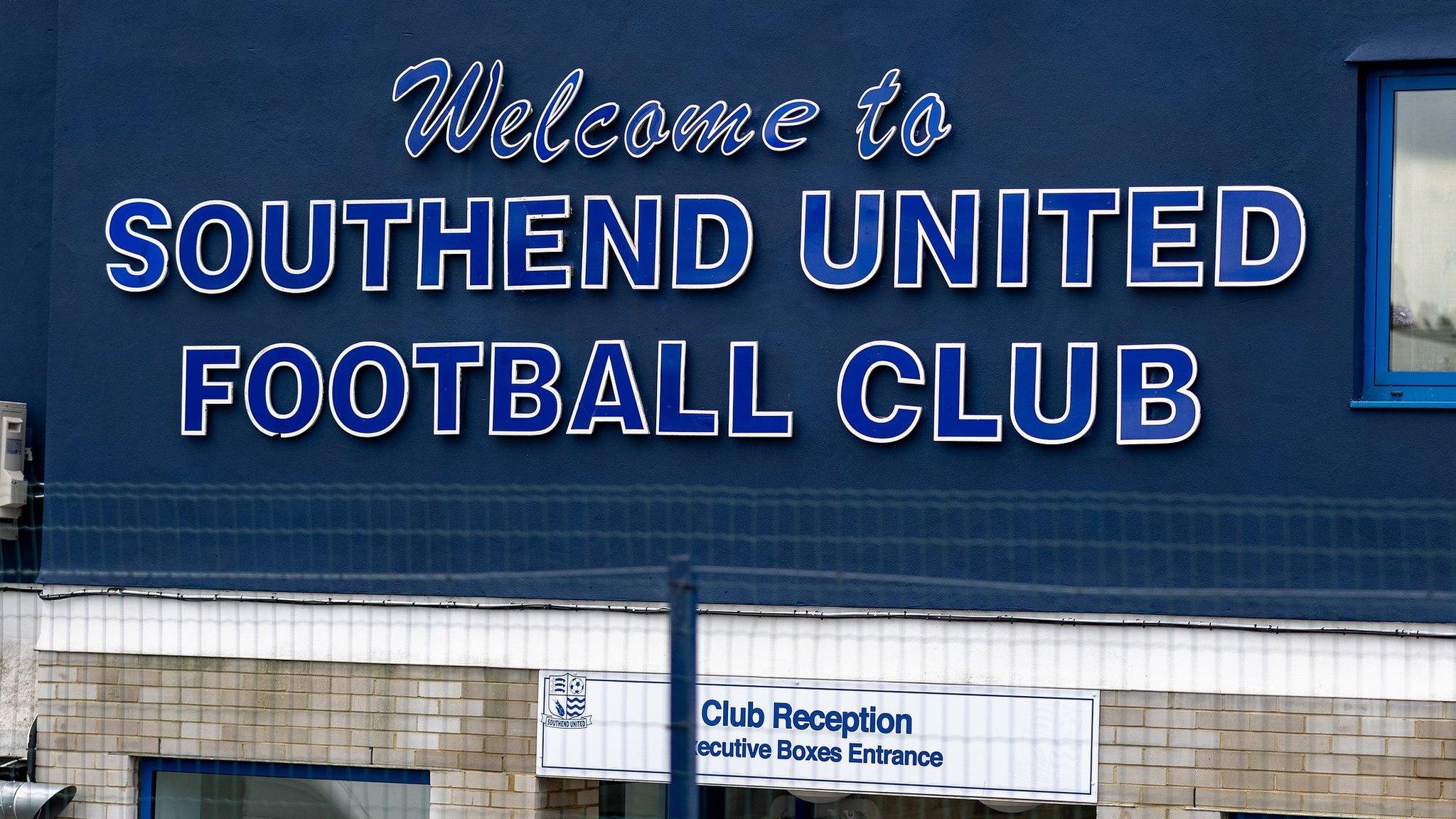Is it the final whistle for Southend United?
- Published
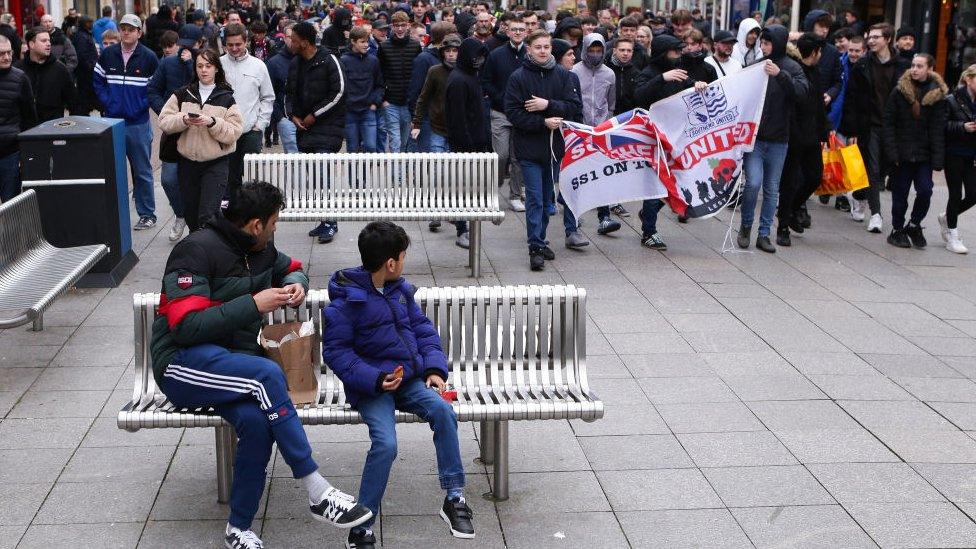
Many Southend United fans, pictured protesting in February, have called for Ron Martin to sell the club
Southend United has been told it could be wound up at the High Court on 4 October if it has not paid its debt to His Majesty's Revenue and Customs (HMRC). How did the football club get here and what might its future hold?

The history
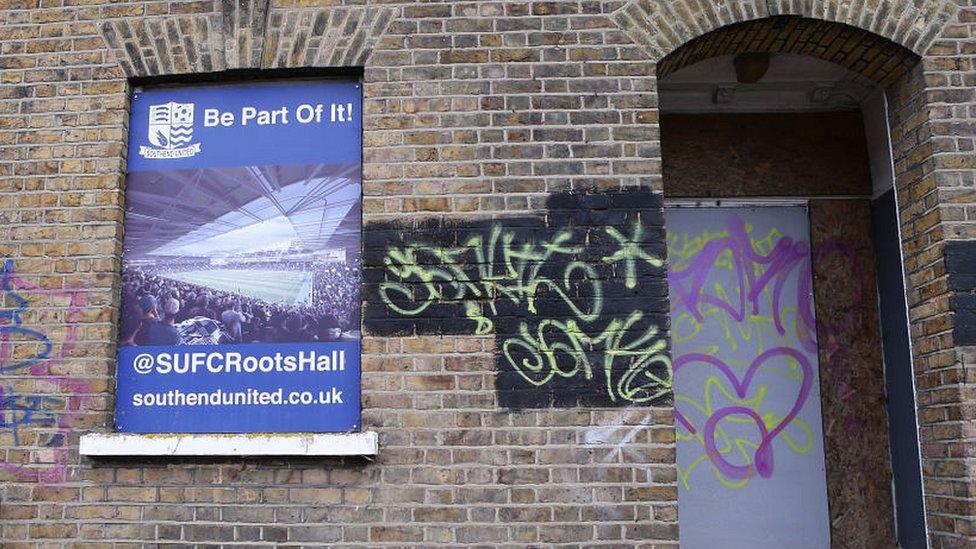
The club was bought nearly 25 years ago by property developer Ron Martin
Founded in a pub 116 years ago, Southend United was later admitted into the Football League in 1920.
The club was bought nearly 25 years ago by property developer Ron Martin for £4m.
He bought it from the former chairman Vic Johnson via a company called South Eastern Leisure, which was a joint venture between Mr Martin's own development firm, Martin Dawn, and Delancey Estates.
The Shrimpers have enjoyed jubilant success in that time, including an EFL Trophy final in 2004 and two consecutive promotions from League Two to the Championship in 2006 under former player-turned-manager Steve Tilson.
Those joyous days are a distant memory.
Blues dropped out of the professional leagues in 2021 for the first time in 101 years and its financial travails threaten to wipe the club out of the football pyramid completely.

The finances
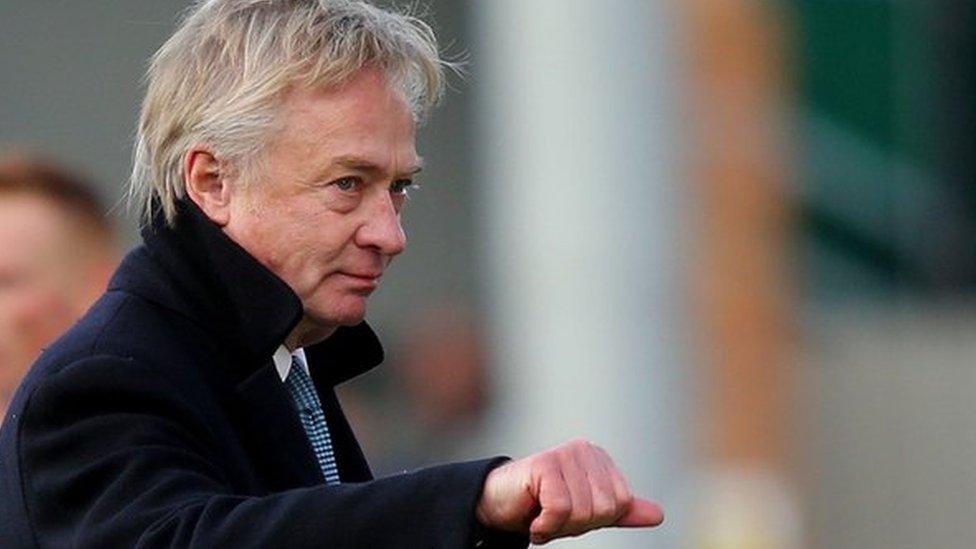
Ron Martin is due at Chelmsford Magistrates' Court on 3 October over unpaid energy debts
The courts have heard how Southend United has debts reaching £2.5m, owing money to HMRC, its energy provider and football creditors.
A £275,000 debt to HMRC remains outstanding and Mr Martin has been told he has until 4 October - the date of the winding-up petition hearing at the High Court - to pay it.
In August, the club was docked 10 points by the National League because of the debt, but the team continues to churn out results against the odds.
Southend beat Maidenhead United 2-0 despite naming a squad of only 13 players and a 37-year-old goalkeeper signed on non-contract terms.
Mr Martin previously said: "The money owed to HMRC is a legacy debt accrued during the period of the pandemic."
This is far from the club's first dalliance with the High Court.
In July 2000, a debt to the Inland Revenue was paid off just a couple of days before a winding-up petition was due to be heard.
Ten years later, the Professional Footballers' Association intervened when players were not paid amid further winding up petitions which were finally settled in August 2010.
The club is also due at Chelmsford Magistrates' Court on Tuesday over unpaid energy bills.

Unpaid bills
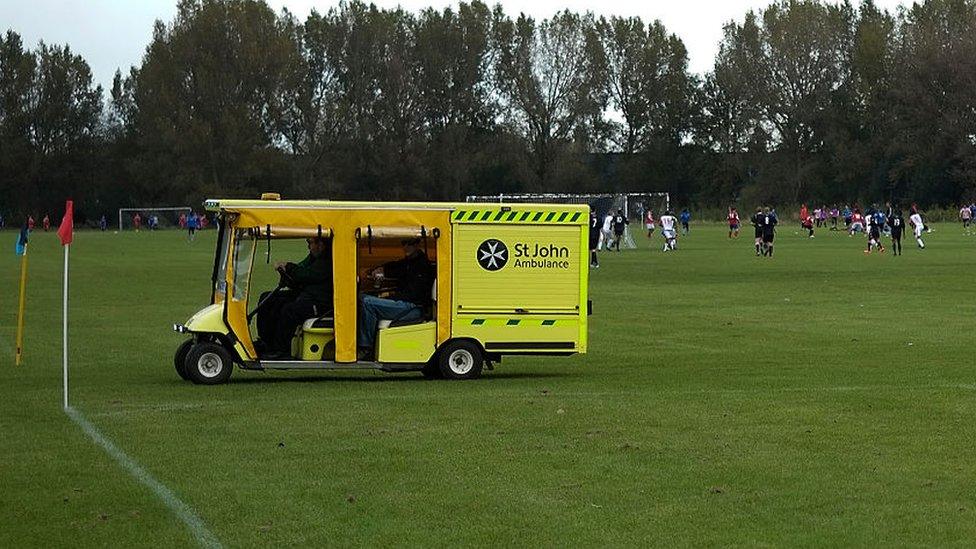
St John Ambulance refused to provide medical cover for a match in February because of unpaid fees
Although the club's accounts are long overdue, the most recent set give some insight into where the club's cash comes from.
The figures show in 2019 it made:
£2.65m in advertising
£1m from operations
£584,000 from trading players
£728,000 in season ticket sales
£413,000 in bar and catering income
£90,000 in television rights
£1.47m in league income
Overall, the accounts show a £7.4m turnover and an operating loss of £2.36m in 2019, down from almost £3m in 2018, external.
About £6.2m was spent on staff costs in 2019.
The BBC understands some members of staff went four months without being paid last season.
Earlier this year, club chief executive Tom Lawrence apologised to staff for late payment of wages and wrote on the club's website: "We have had to navigate tricky waters."
Glenn Speller, BBC Essex sports reporter, said: "Staff have had to accept for some time now their end of month wages are not guaranteed to be there on time."

Roots Hall and Fossetts Farm

The original planning application for the stadium at Fossetts Farm was submitted in May 2017
Central to Southend United's future is the chairman's long-standing ambition to develop Roots Hall, a project expected to yield a multi-million pound return.
The current Roots Hall ground would be turned into 502 new homes for rent once the club has relocated.
Plans for a 21,000-seat ground at Fossetts Farm were first submitted in 2017.
The plan was approved by Southend-on-Sea City Council last year but legal agreements were needed because of the size of the application.
Mr Lawrence previously told the BBC: "There is currently a funding gap of around £2m per year that needs to be plugged."
He described Roots Hall, the club's home for the past 68 years, as a "money pit with inadequate facilities to service our fans and to generate income".
Mr Lawrence said staff had been "patient, loyal and understanding" and would be "rewarded" as the club's plans move forward.

A 'phoenix club'?
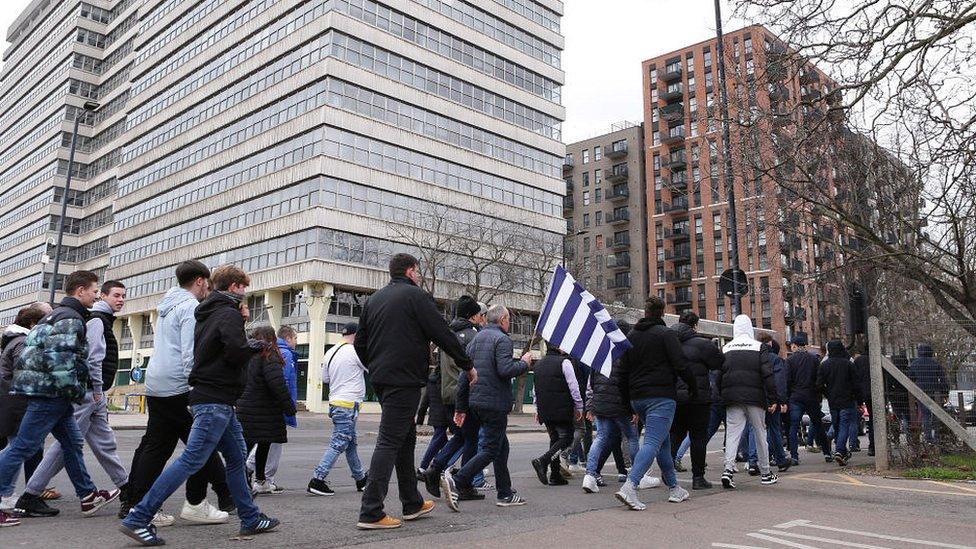
A working group has been set up to explore the possibility of setting up a phoenix club should Southend United FC be liquidated
Supporters' groups fear this winding-up petition really could spell the end.
A working group has been set up to explore the possibility of setting up a phoenix club should Southend United FC be liquidated.
But the fans' groups say they would rather support the existing club.
"The supporters have grown tired of the continued financial issues," said Mr Speller.
"There are divisions among the various supporter groups over how best to proceed. Some have called for the boycotting of games or demonstrations during matches. There have been marches through the city."

Legacy debt
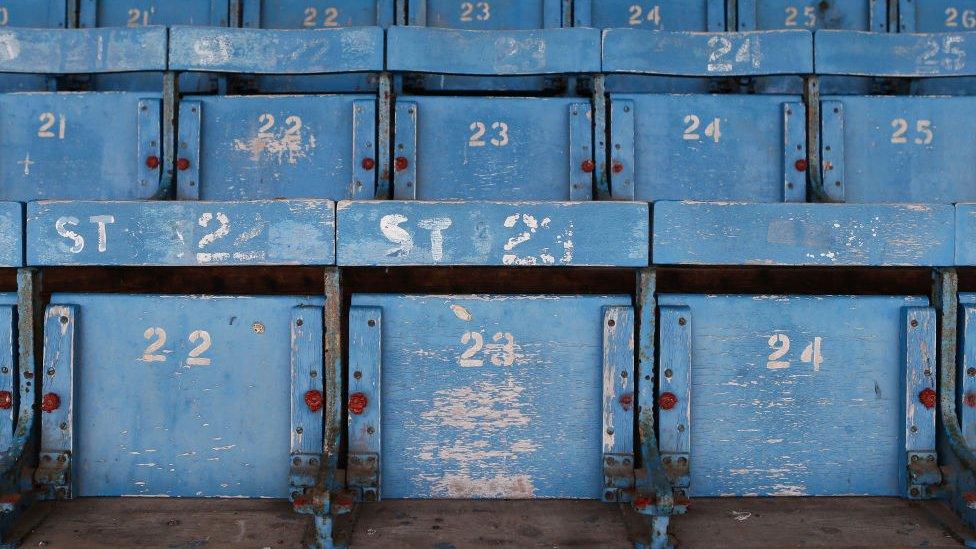
Former Shrimpers player Glenn Pennyfather said the current situation was a "mess"
Former Shrimpers player Glenn Pennyfather, who presents the Fans' Phone In show at BBC Essex, said the club's fans were very worried about the current predicament.
"It is the worst situation I've ever known and I've been involved with Southend United for a very long time," he said.
"It is a mess to be honest. This is the worst it has ever been."
In an email sent to BBC Essex about a previous High Court hearing in March, Mr Martin said "we will not let the club be wound-up".
He added: "Raising the funds is my primary focus. We are advanced but not there yet. Times are tough but I'm not a magician. However, if we get past this current trauma, the future for the club is bright."
He said talks with the council over the move to Fossetts Farm were "advanced" though "perhaps a little slower than both the club and council would wish".
Mr Martin said the club's "legacy debt" was made up entirely of PAYE for player wages when they were in League One and League Two.
Last month, Southend councillors voted through a motion, which pledged to at least consider setting up an investment fund to support the struggling club.

Up for sale
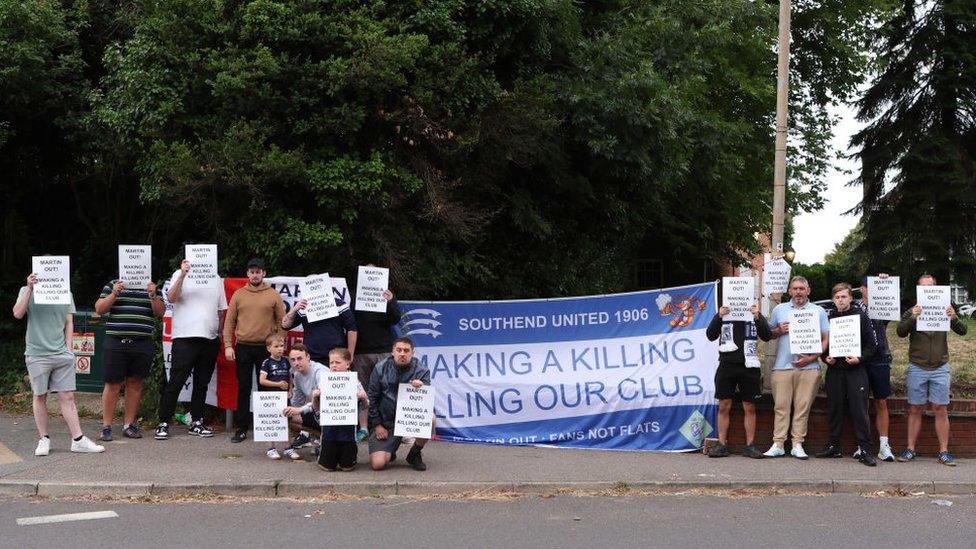
Some Southend fans protested outside owner Ron Martin's home in July
In March, Mr Martin shocked fans and announced he was putting the club up for sale.
Then in July, he said he would sell his 70.6% stake for £1 but would need £4.5m for Roots Hall - the fee he paid for the ground 25 years ago.
Australian businessman Justin Rees leads one of the consortiums who have attempted to buy the club, but said two of its takeover bids were rejected.
Mr Rees said he feared administration was a realistic threat for the club as a result.
"We remain open to continued negotiations with Mr Martin. However, it now seems unlikely that any deal can be agreed prior to the 4 October court appearance date," said he said.
"Any deal is particularly complicated due to the state of the club's finances, the condition of Roots Hall, the non-viability of a new stadium at Fossetts Farm, as well as the ownership of the training ground and Roots Hall properties remaining outside of the club."
This article has been updated and was originally published in February 2023.

Find BBC News: East of England on Facebook, external, Instagram, external and Twitter, external. If you have a story suggestion email eastofenglandnews@bbc.co.uk, external
Related topics
- Published21 September 2023
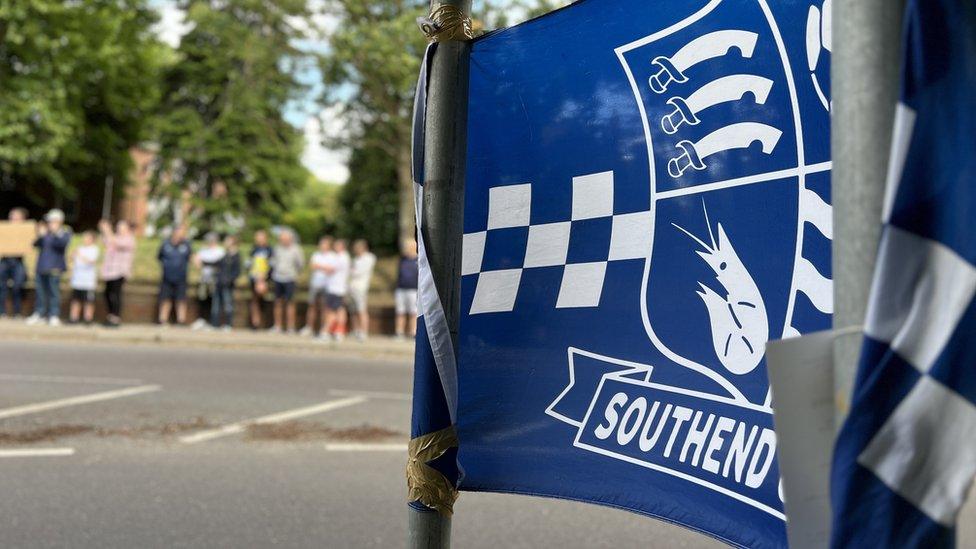
- Attribution
- Published20 September 2023
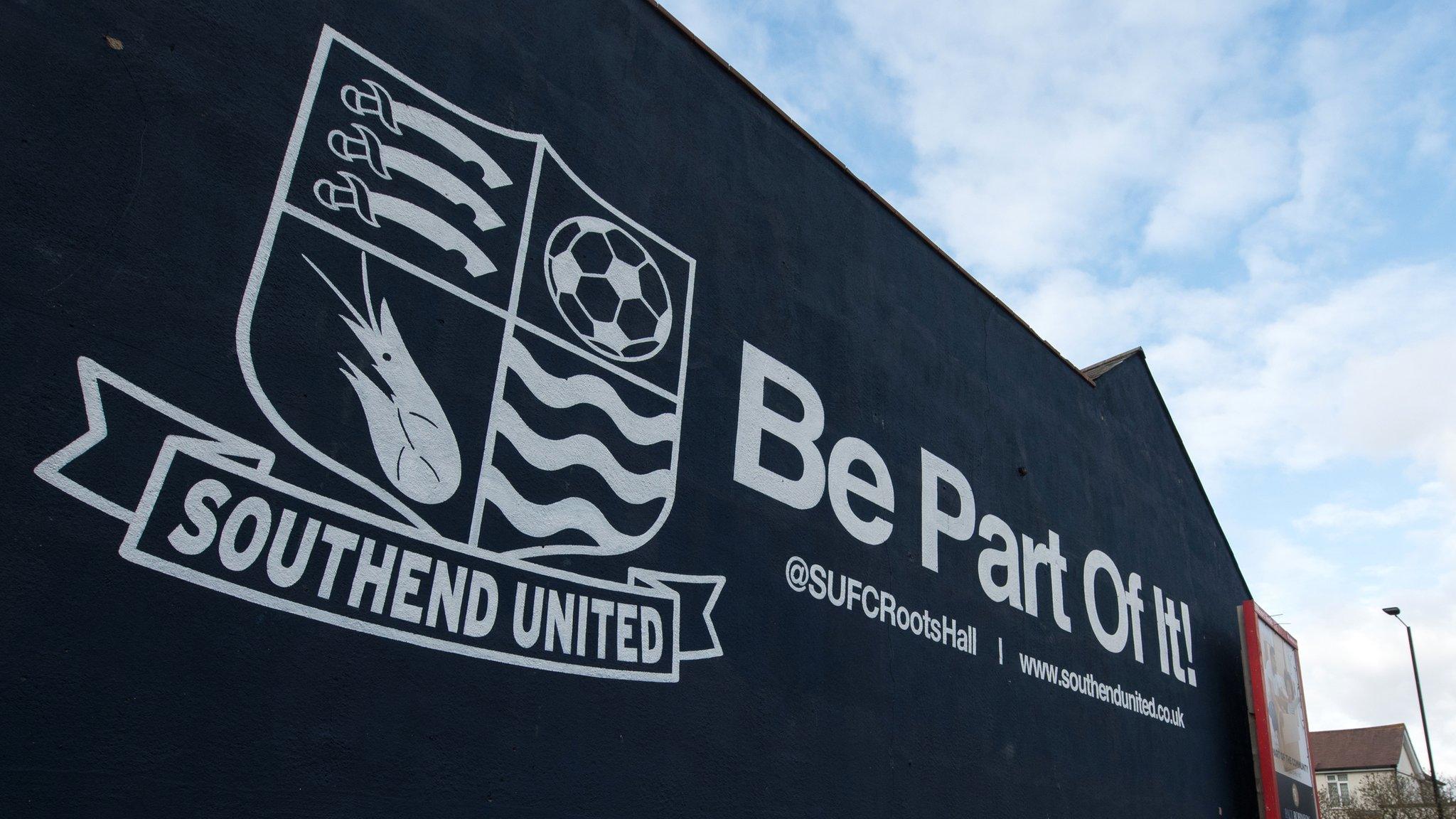
- Attribution
- Published23 August 2023
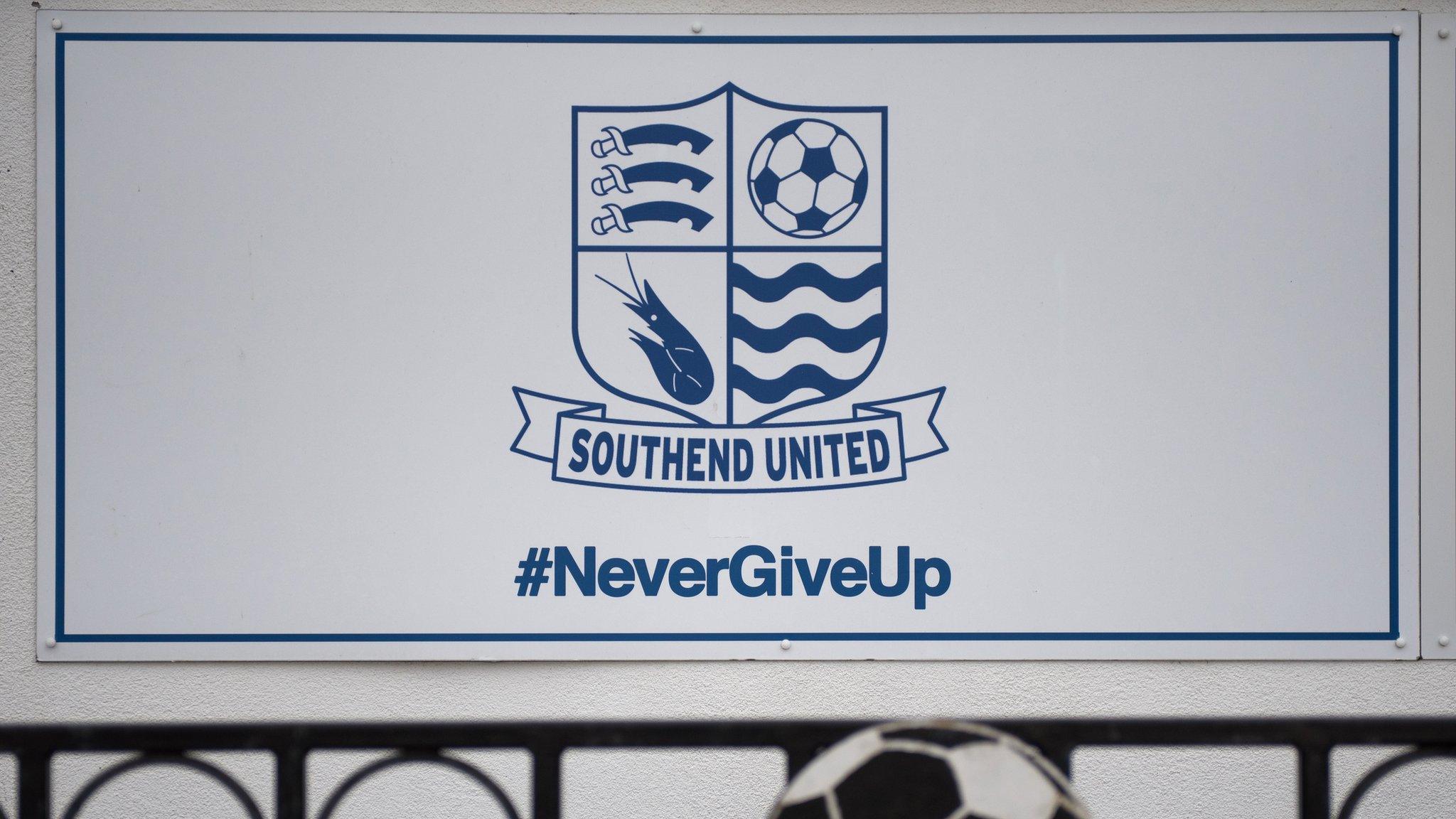
- Attribution
- Published1 February 2023
